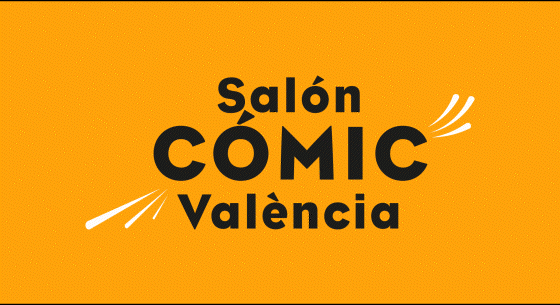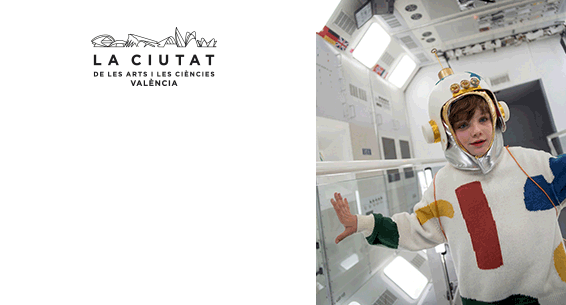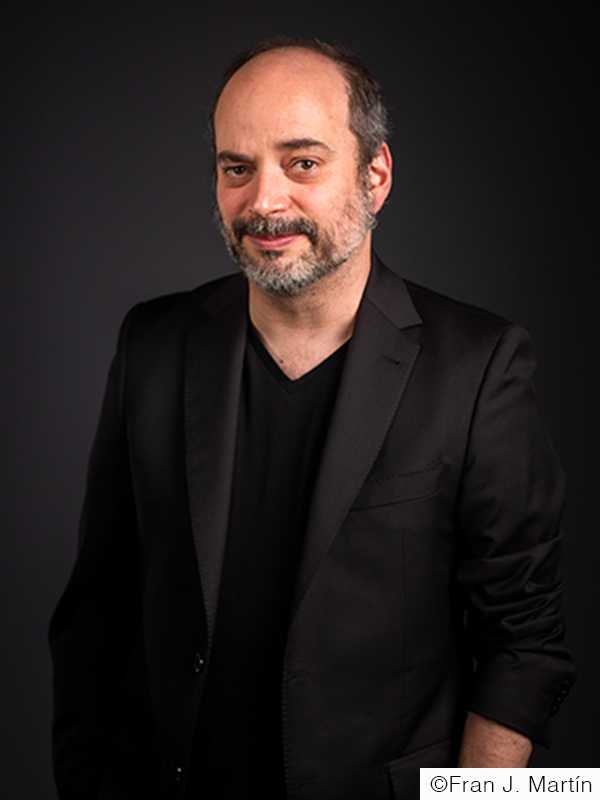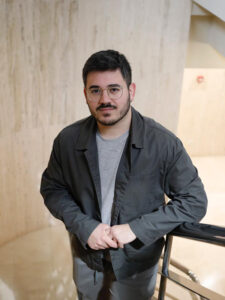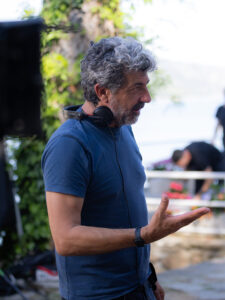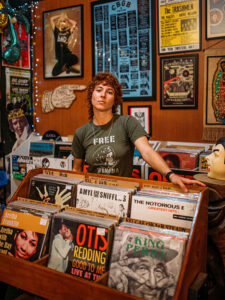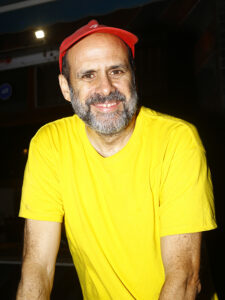If you are a regular on Youtube and, besides, you like cinema, the name of Alejandro G. Calvo must be familiar to you. He is the visible face of the Sensacine channel where he comments on current cinema and television series.. Last year, Alejandro published the book A movie for every year of your life (Planeta publishing house, Today's Topics collection), in which he collects, as the title itself already suggests, las 100 movies you should see (or what do you recommend) before leaving for the other neighborhood.
There are one hundred films for one hundred years of a life. Did you know that life expectancy has increased a lot, but, I told myself: what an optimistic man!
(laughter) Bueno, I'm not optimistic about myself, because I'm also a smoker, so I won't even make it to a hundred years, and I'm also a hypochondriac, with which I always reduce my age a lot (laughter). But, when I accepted the book order, I was clear that it was going to be a hundred years because my grandmother Gorgonia, the one I adored, lived a hundred years (lived almost 101, in fact) and I said: man, If my grandmother lived a hundred years I will have to show a hundred movies because, but, I would scold. Besides, When I make tops of my things I always tend to include a hundred movies. I like round numbers, long, and I like to include many very different films so that people discover titles.
You have already told me that it is an assignment, i guess, from the publisher. But it's also your first book.. What encouraged you to accept it?? Writing a book is very different from writing an article., much more showy.
Well, the truth is that, input, I didn't accept it (laughter). At work level, my life is very chaotic. I'm always working, from monday to sunday. When you dedicate yourself to being a film critic, series critic, you are always watching movies, you are always watching series, you are always writing, recording, and when they told me, think: “but if I don't have time! When am I going to do it?” So, input, I said no. It was my friend Philipp Engel who told me: “but, are you an idiot? (laughter) What do you think? They are calling everyone to write books? And you go and say no?” That slapped me with reality.. I talked about it with my wife and my children because I knew it was going to take away even more time from being with them., and for me they are the most important thing in my life. And my wife supported me and told me to go for it.. In fact, she has proofread the entire book (my wife is a writer and proofreader). So I got in without knowing where I was getting in. (laughter), without knowing what I was going to write, without knowing if I would be able, nor when was I going to do it. From there, was writing one text after another. The advantage of the book is that it is still a movie [per chapter] y, in that sense, they are like little ones sprints. You get into a movie in a short period of time, (viewed, documentation, reflection), you write it in one go and, when you get rid, you have to get into the next one. That is an easy way to work because it does not require you to write a long story.. Even though it's a big deal, as you say, They are still separate texts that are different from each other.. Sometimes I approach the movie from an emotional perspective., sometimes I approach the figure of the director, sometimes because of the historical context, sometimes because of the aesthetic avant-garde in which I am involved... I did not follow any methodology. It was all very passionate, very impulsive. Surely, I had no idea what I was writing until they gave it to me in full. (laughter). So, I read it and said “ah, Well it hasn't turned out bad”. And yes, it is different from writing an article or a review because something is governed by current events and you have to measure the film at the moment it is released., and this was talking about classics and cult movies. There was no urgency here to relate it to the now, it was about, simply, to approach films freely.
How would you like the reader to understand your book?? Like a map or guide, or an invitation to something else?
Don't know. I have written the book completely freely, so the reader can do with it what they want. I think that, If anyone is generous enough to buy the book and read it, do what you want. You can read it in order or not., You can read only the movies you like or not... I have no demands. I feel very grateful to all the people who have bought the book, the people who have congratulated me, who has come to the signing sessions… I have lived a very, beautiful.
Beyond what is a list itself, What impression would you like the reader to take away when finishing the book??
I have chosen 101 movies, but it could have been others 101 why, in the end, I really like cinema, I like many movies. People who know me know that I approach cinema in a very empathetic way.. I'm not a critic who enjoys badmouthing movies.. I like to spread the love of cinema. And the love I feel for cinema I like to transmit it just as I feel it, which is a complete form. That is to say, I am not someone who says, “no, "I don't watch this type of cinema.". I like all cinema. I like the avant-garde, I like a good commercial movie, I really like Asian cinema and I also like North American cinema., and I wanted everything to be represented. In the book I include directors like Pedro Costa or Aleksandr Sokúrov, who are tough avant-garde directors, but I also put Ghostbusters, and I put the big ones in, a Scorsese, to Fincher... I wanted there to be everything because I think, If someone enters the book because they want to read what I put in Quentin Tarantino's movie, who is a director that everyone knows and likes, Maybe I end up watching a Robert Bresson movie, which is also. In my experience as a critic, Discovering directors and films to people is one of the most beautiful things about my job. When you get it it's really cool.
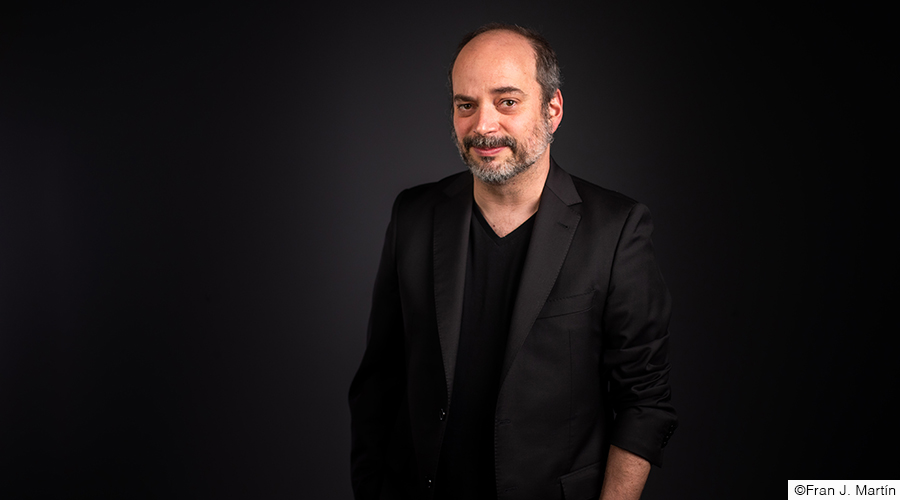
The selection, as you say, It's quite eclectic. When I have finished the book I have reviewed the films by vital decades, which is how it is divided, and there you do perceive an intention to address a viewer of a certain age at a given moment. How was it, in that sense, that selection work?
That's one way to approach some movies., because of the age in which I am involved and that the reader also shares. That is to say, What movie is the best to watch at this age?? But there was a moment, let's say, surpassed my own age (I have 45 and I wrote it with 44), in which I realized that I had to speculate, and that was more than half of the book! (laughter). Honestly, I don't know what movie to see 73 years, I have no idea. So, What I did was organize it thinking: “a ver, I want these movies to be there, or I don't want to leave these aesthetic movements out.". And so. One of the things I have laughed the most at in interviews is when they tell me that I have put Mandy, Panos Cosmato's movie [pretty bloody horror movie] in his seventies. And I don't think it's a movie to watch when you're in your seventies., it's outrageous. But I wanted it to be there because I think it's important and, in the end, I got in there. Which is very lax on my part., but I think it's fun. In the eighties, For example, I decided to put arthouse cinema harder because I told myself: “bueno, if you have reached eighty, you can afford to get into harder films, more metaphysical. "Do not go to die without knowing Tarkovsky or Sokúrov". In the nineties it was clear that everything was going to be comedies. It's like the grand prize, because at some point we have to stop suffering in this life and it's time to laugh. And so on until 2001: a space odyssey, the last.
I would tell you that you got that right., but with nuances. I think you get the hard times when you're young., when you are more willing to do anything, and it seems to me that later, when you get older, You don't want to worry about it.
(laughter) Yeah, Of course, but again it's speculation. In the part from zero to 44 there is some of my emotional biography filtered through movies. The doubts, the fears, the joys, but also personal pain. Following that autobiographical element, leaked films that talk about what it means to be young, what it means to not have a job, what it means to be a father, What does it mean to get your heart broken?, etc. That is included in the book in a very visceral way., even. movies like In the mood for love, before sunset o Two lovers They are very important in my life. On the other hand, even if it is a camouflaged emotional autobiography, It should never be something impudent, extremely vain or selfish. In the end, we have all had our hearts broken, we have all fallen in love, we have all been afraid, On some occasions we have not known if we are going to have a job or we have all felt that our parents squeezed us too much.. That's something that's not just mine., It's from humanity, is the existence. And when you talk about cinema (and I have found this in meetings with the public), you connect with people because you connect with a very personal part, very emotional and very beautiful that we all share through movies.
In the case of Spanish cinema, I think it's just Rapture from Zulueta…
No, there is more. There is little, but there is more. Narciso Ibáñez Serrador is here, there is Buñuel… There is not much, It's true, but it's not a conscious decision. In fact, the first time they told me in an interview, think: “Oysters, Well, it's true.". I am a defender, precisely, of a history of Spanish cinema that may not be so well known. I am a big fan of fantasyterror, For example, I am a fan of spaghetti western, I am a fan of directors who are the bomb, but what, however, It seems that they are always behind the great official history of Spanish cinema, which seems more boring to me. So, think: “I have to save that for another book.”. Yes I put Zulueta, that for me is God, but they are Jacinto Esteva, Joaquim Jordan, Victor Erice, there are a lot. Stealths by José Luis Borau was in my shortlist for the book. Stealths it seems stupid to me. They are also condemned to live by Joaquín Romero Marchent or Aunt Tula by Picazo, what is the bomb, o The tower of the seven hunchbacks. There is a cinema there that I would have loved to put in., but, in the end, The movies came to me as they came to me. Yes I managed to get in Videodrome, For example, but I couldn't get Neville in. a shame. But, eeeehhh, It will be another book! (laughter)
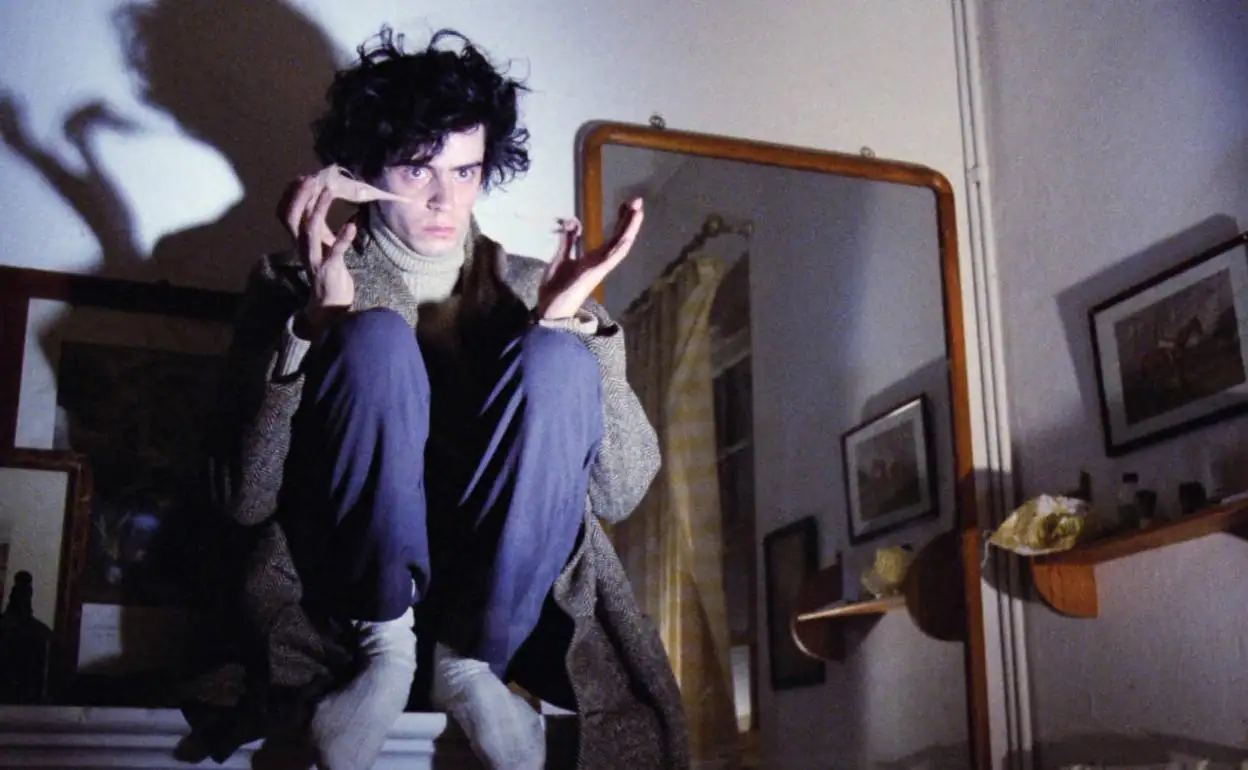
Regarding this that you tell me, I remembered that it caught my attention that in the book you are like conversing with yourself all the time.. Even, you say one thing in one place and then say another, similar or the opposite, in another chapter. For example, sometimes you defend feminist films, but you also really enjoy Monty Python's anti-feminist parody.
(laughter) Yeah, again, the book is a reflection of who I am. I am a feminist, but I understand that we can also laugh at everything. In that sense, I really like cinema that is not afraid to address complex themes, controversial, to be, even, a dinner (especially when you go into your seventies and beyond.) that maybe the moral rigor that we have right now would not pass. I think that, Although I am a person who is very concerned about the society in which we live and that his children grow up free and tolerant., if you watch a Charles Bronson movie (who is basically a crazy fascist who won't stop killing traffickers), I don't think it should be condemned. the cinema, in the end, it's cinema, It's fiction and you can laugh at it and, then, be a person fully aware of the current reality.
There is a note in the text of The Master, by Paul Thomas Anderson, in which you reflect on the need for a cinema that forces the viewer to experience. I also feel that, over time, that spectator who wants to experience has been lost. I don't know if you feel the same way. Can you get that viewer back??
I believe that there is still a curious spectator, eager to face challenges, and a young spectator, besides. But it is true that society, in general, lives a little narcotized by the cinema and the series that we watch on platforms that, to a tremendously high degree, They are all very similar. We live with pressure like never before in the history of cinema about what we have to see because it has been released on X platform.. In many cases, the movies seem made with algorithms (I talk about cinema-algorithm many times in my videos), they are all the same. There is a risk there. For example, Where is the classic cinema for the viewer to see?? Where is the auteur cinema that I see at festivals?? It's as if we had to find an extra motivation for these films to come naturally.. However, We are all under pressure because the new series of Star Wars Marvel's. I like the series Star Wars Marvel's, it is true that, in a very strong part, we don't get out of there. It is necessary that these other films also reach the people. The master or all the cinema of Paul Thomas Anderson is a great example. This year we have had Oppenheimer, we have had The Moon Killers, that have worked. They are two auteur films, from tremendously well-known and proven directors, three hour movies that are not easy, but they have worked. Yes, that curious spectator still exists., but here it is my job and that of my fellow critics, never stop pushing for people to see those films that advance the history of cinema, those movies that are important to us, not only for aesthetics, but also for the moral, for the relationship with the present.
There is something that is said very frequently in the press, what film criticism has lost its influence. Why or how could this criticism be recovered for the general public?, if it is necessary?
The arrival of social networks made people informed, naturally, more through what people they followed on social media thought, with whom I saw that they shared tastes, than with critical articles in magazines and newspapers. That is something that has happened because technology has led us to that.. But just as I told you, there is still a curious spectator., There are still people who want to read or see criticism and who want to criticize, also. The issue of the importance of criticism has been there since I started writing.. It's like we don't matter anymore, that nobody reads our chronicles, but my reality is that when I go to Venice and make eight or nine videos from there, I exceeded half a million views. That means, to the people, you are interested in criticism! It means that there is someone who is very interested in knowing what the movies are like.. And here I believe that the media have to have a responsibility. That is to say, the media, those newspapers and magazines, They have to continue betting on the figure of critics. It's very basic. The issue is that, If you don't get paid to be critical, It's going to disappear because you have to make a living. In the end, you also have to eat. We need the media to be more responsible and there I do see that we have lost something.
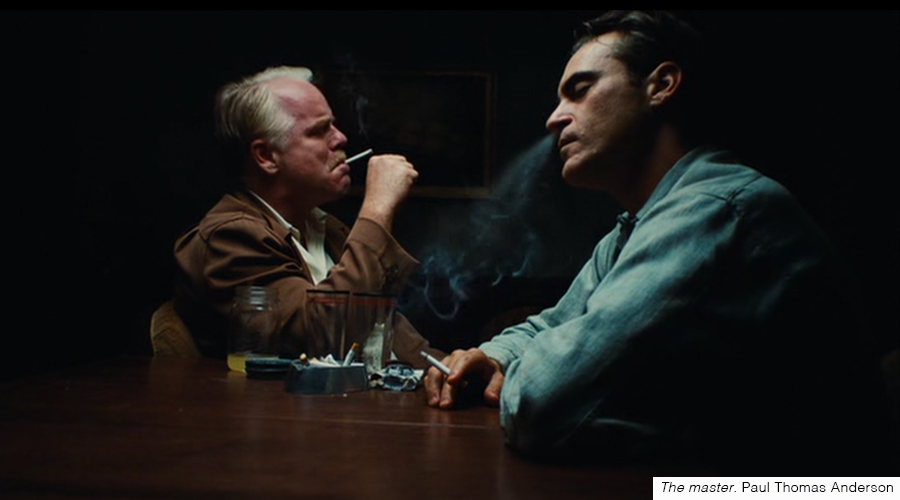
talking about losing, there is a moment, towards the end of the book, in which you state: “this is a time in which we live flooded with images; visual content machine-guns us day in and day out, and we don't watch movies anymore, but we watch videos on our mobile (…) “We are losing the battle.”. How do you see the future of cinema? Is it so black?
you imagine, a hundred years ago. We had never seen moving images and, suddenly, The cinema arrives and it is something brutal, something extremely exceptional. That lasts decades. Cinema survives something as beast as the arrival of television, where people could already watch movies at home. Why would you go to the movies?? Well he resisted. When the Internet arrives and we can see movements on the computer, on mobile, the value of images loses weight because we only see moving images. Suddenly, a movie is no longer something so exceptional because you are watching hundreds of videos on your mobile. There is something natural there, natural by destructive, regarding the value, to the weight of the images, because we live, that, drowned in images. This is something that everyone should reflect on.. I am clear. I am still an old man (laughter) who likes to go to the cinema. I like to watch a movie on a huge screen with good sound and, although not always, because it depends who you share seats with, in general, living the collective experience of cinema is something incredible. If you go to the Sitges Festival, you will know. Be yelling with the entire audience, while watching a horror movie, or measure the silence that falls in the room at an important moment in a film; All that still seems glorious to me., They are mystical experiences. For me it is much more important than anything that happens to you on your cell phone.. But it is also our reality. What I am trying to do is use these technologies to claim the other.. I am very porous, very open and, although I'm older, I try to follow things. It's complicated. Once, Abel Ferrara told me that cinema would continue to exist as long as filmmakers exist, as long as there are filmmakers, said. So, as long as there are filmmakers we spectators also have to be there. I don't see anything wrong with people watching movies at home., I watch a lot of movies at home, but I try to follow a certain liturgy, don't look at your cell phone, have the living room turned off, try to be concentrated because there are films that need that care. If you wear one of Fast & Furious, very big things don't stop happening, very spectacular and you are hooked. But if you watch a movie that needs a lot of attention, because it's a silent movie, slower, in which the dramatic development is calmer, there you have to position yourself as a spectator. If this cinema requires a more demanding viewer, try to live up to. Although then I am also a person who thinks that people do what they want because they force us to do quite a few things (laughter) I bet because, if people follow me, It's because he likes movies, he likes series. So, I'm going to try to make your viewing experience richer.. Your cultural experience.
There is a phrase by the critic André Bazin that you quote in the book that says: “cinema replaces our gaze with a world molded to our desires”. In this context that we are discussing, How do you interpret that phrase today??
It's from the book What is cinema?, of Basin, one of the basic books of criticism. Bazin was a defender of cinematic realism, but not as a cinema that seeks to mimesis reality. A cinema that was documentary, although even within the documentary there is some fiction. It's not about making movies that are the same as reality, but those that create a fiction and come to you as fiction, but that acquire an important realistic weight. That is the realism that Bazin talks about. In the end, you replace real life with a fake life, which is from a movie, but it comes to you without sutures, direct. That is the realism that Bazin defended. and I am with him, even in fantasy and horror movies.
Are you one of those who believe that the best cinema today is made on television??
Eeeeeehhh…. No. (laughter) I mean, The best cinema is made by the best filmmakers and today all filmmakers, (except Fincher who just said no), They want to make a good movie and release it in theaters. Oh well, Today's industrial production makes them go to TV. We have been quite lucky that Apple has let Scorsese release his film in theaters. Netflix also did it with The Irish. ¡Jo!, when I saw The Irish on the big screen... the experience of watching it on TV (bufido). I believe that responsible directors make films thinking about their final quality., and I hope they are released in theaters, but they are not better or worse because they premiere on television. Mira, Richard Linklater's latest is going to go to the cinema in Spain, but in the United States it will go directly to TV. And it's a great movie! It's the movie I liked the most this year. In the United States it will go directly to Netflix. But it's not a Netflix thing., Prime does it, Movistar does it… I mean, movies are released that you don't realize have been released. And they are very good movies. Because? Because they release so much that they don't reach the viewer. That's a shame because those movies are irretrievably lost..
Was I going to ask you, to finish, What brilliant film in the history of cinema have you seen so many times that you already hate it to death??
Oh, I don't hate any movie, uncle. I don't hate any movies. Even the movies I don't like from the directors I like the least., I don't hate them. No, no, no. (laughter).




